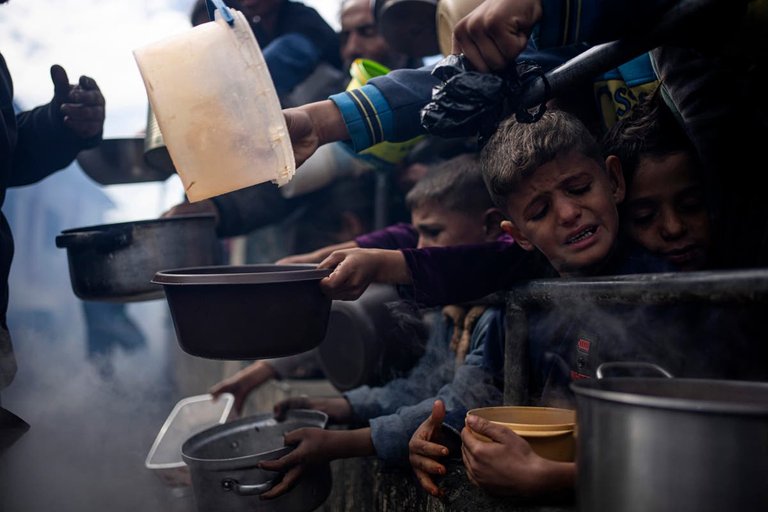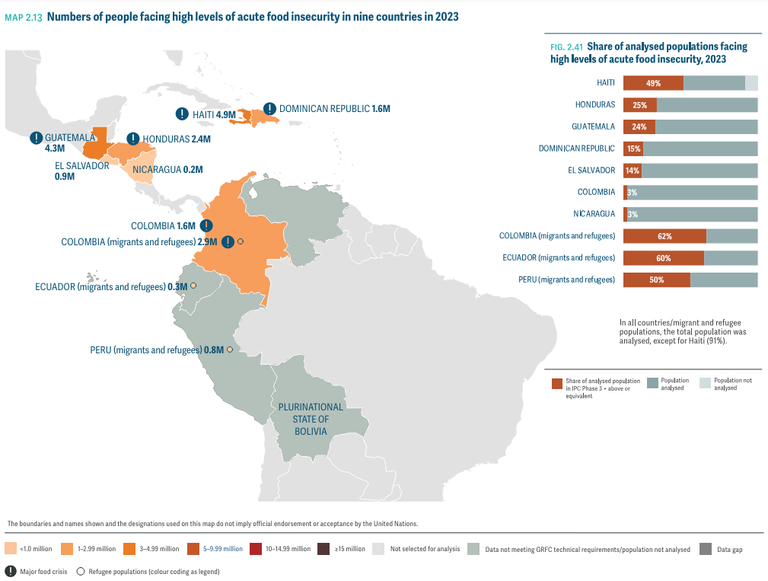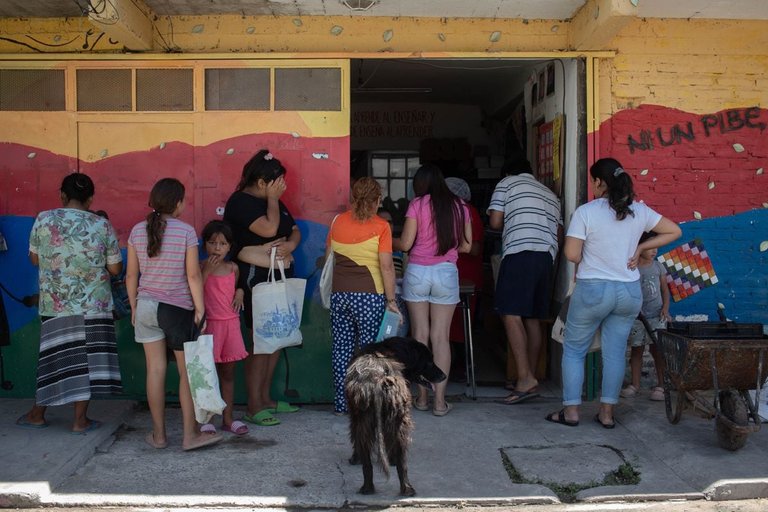
The Food Security Information Network (FSIN), a technical global platform financed by the European Union, recently published the latest edition of the Global Report on Food Crises, a critical tool it prepares for the Global Network Against Food Crises. The latter is an initiative launched eight years ago by the European Union, the Food and Agriculture Organization, and the World Food Programme. The overall picture could not be bleaker. Nearly 282 million people included in the study—1 in 5—"faced high levels of acute food insecurity in 59 food-crisis countries/territories", an increase of just over 9% from the last record.
The study revealed that acute food insecurity increased in one-fifth of the countries covered. According to the IPC Acute Food Insecurity—an index that measures the negative progression of this scourge through five phases—more than 36 million individuals in some 40 countries surveyed faced Emergency (IPC/CH Phase 4), while "more than 705,000 people were at the Catastrophe (IPC/CH Phase 5)", the worst phase. Although 4 out of 5 of the latter live in the Gaza Strip, South Sudan, Burkina Faso, Somalia, and Mali. Finally, in this general order, more than 36 million "children under 5 years old were acutely malnourished" in 32 countries, with 1 in 4 of them facing severe acute malnutrition.
 Source
SourceThe regional stage
In Latin America and the Caribbean, FSIN reports that "[the] share of the analyzed population facing high levels of acute food insecurity declined across countries included in [the last two reports]". Predictably, Haiti—where the Presidential Transitional Council was sworn in yesterday—was the nation in the region hardest hit by food insecurity, which like a swollen and overflowing river drowned 1 in 2 people. Some 300,000 Haitian children "were acutely malnourished". According to the findings presented, the climate variable—with emphasis on El Niño-Southern Oscillation—was key in a negative sense for its impact on crop yields in countries such as Colombia, El Salvador, and Nicaragua.
About 20 million people "faced high levels of acute food insecurity in 2023 in nine [sampled] countries", with 15% in the Emergency IPC phase. This last figure is incomplete even within the sample, because only five countries report it. After Haiti, the most affected countries are Honduras and Guatemala, where 1 in 4 citizens face high levels of food insecurity. In the Dominican Republic and El Salvador, around 15% of the population suffers from the same problem. Of the nine countries included in the report, Colombia and Nicaragua are the best performers, with only 3% of their population in danger. I have spoken on other occasions about the mismatch between the narrative on the issue of human rights in Nicaragua and the state of the economy there.
 Screenshot of the report for the region, available here.
Screenshot of the report for the region, available here.The picture is even darker for displaced people
In an interesting read, FSIN surveyed—for the first time—migrant and refugee households in Ecuador, Peru, and Colombia, finding that this population is in a serious state of vulnerability. For example, 3 out of 5 migrants or refugees face high levels of acute food insecurity in Colombia and Ecuador. In Peru, FSIN's measurement showed that half of this group is also victim of food stress, with high rates of wasting and anemia reported in children. The causes of this dynamic, according to the authors of the report, are an uneven integration process—with much stigmatization—and the precarious nature of their jobs. In the coffee-growing country, migrants and refugees "were significantly affected by economic shocks". It would have been positive to obtain a reading on the situation in Chile. FSIN's findings correspond to the migratory crisis that was generated last year in the region, with many Venezuelans returning to their country, mainly from Peru and Chile.
 Argentines queue at a soup kitchen last March (source).
Argentines queue at a soup kitchen last March (source)."Hunger is a global shame", says renowned Argentine journalist Martín Caparrós, who has focused much of his recent work on this issue. The region can obtain better records and, indeed, eradicate the scourge. However, the supply chains are organized in a way incompatible with that goal, something we have just addressed here based on the national experiences of Brazil and Paraguay. Latin America provides the world with food that its population lacks. In the South American giant, food insecurity dropped 9 points in 2023, but the fact that 3 out of 10 Brazilian households still suffer from food insecurity is nonsense considering the country's production potential. More than 3 million households reported "[going] hungry and [facing] food shortages due to insufficient resources" there.
At the base of all this social drama—at a global and regional scale—is the latent subsidized ignorance to which those who suffer it are exposed, alien to sound democratic practices to claim a better environment, but fundamentally to the luminous knowledge that allows them to get ahead for themselves. Note: The FSIN report does not include data for Venezuela, Cuba, Ecuador (nationals), Peru (nationals), Mexico, Panama, Costa Rica, Chile, Paraguay, Argentina, and no Caribbean nation.
And this is all for our report today. I have referenced the sources dynamically in the text, and remember you can learn how and where to follow the LATAM trail news by reading my work here. Have a nice day.


Funny that most of the left wasn't mentioned in the study including Cuba, Venezuela and until recently Argentina. There are many other things going on like the impact of lack of contraband flour in Bolivia after Milei closed the borders to illegal traffic.
But also Argentina poverty numbers on 'regular' poverty and 'extreme poverty', has been pretty high averaging 56% of the population below poverty line and one in 3 children with food insecurity.
This proves that the problem is the criminals that pretend to be governments.
Thanks!
To a large extent, rulers only facilitate the dispossession and diversion of resources that could make life more viable for those at the bottom. The truth is out there, tangible, and that's why one feels impotent with this situation. Thank you for this feedback.